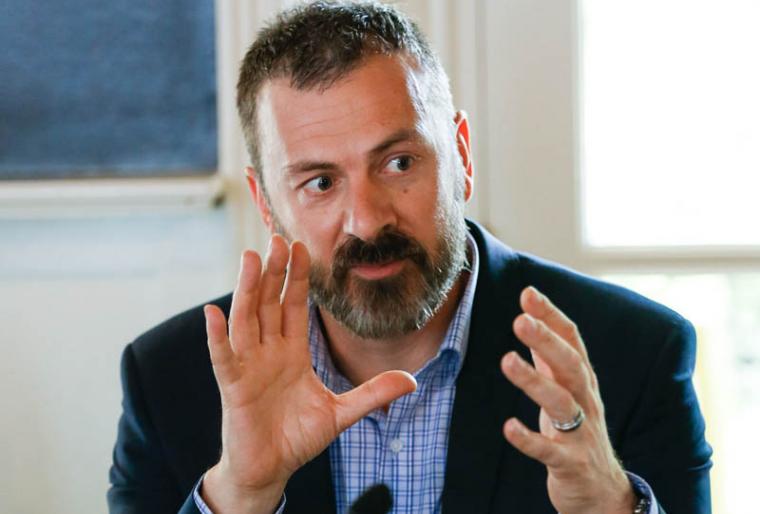In a new study released by the OECD, CSIRO’s Data61 has been recognised as a “global blueprint” for digital and open innovation.
The report on opportunities in digital innovation offers the organisation as a case study to show how successful a multidisciplinary approach to networks of research collaboration can be.
The OECD report, Digital Innovation: Seizing Policy Opportunities, was launched in London overnight after three years of global analysis. Through that research they identified Data61’s network of 30 university partnerships and its focus on data science as a unique model worthy of note and asked Data61 to prepare a case study to be included as part of the final report.

“CSIRO’s Data61 is a good example of a research and innovation centre – it promotes multidisciplinary teams combining strong data and field-specific expertise, which are much needed in the digital age,” said Mr Dominique Guellec, Head of the Science and Technology Policy Division at the OECD, in a statement.
Data61 Commercial Director Cheryl George made a presentation at the launch event in London, which took place as part of a larger OECD event on digital innovation and university-industry collaboration.
Data61 chief executive Adrian Turner told InnovationAus.com that inclusion in the report does more than recognise the organisation’s work.
“What it does is recognise we’ve also innovated around the underlying model toward solving big problems for the country and taken a whole of country approach. I hope we continue to gain momentum domestically to take on bigger challenges,” said Mr Turner.
“For example, one area where we are behind is AI so I’d like to see CSIRO and Data61 play a key role not just in the science of AI but the application of AI toward national problems. What I call ‘AI with purpose’,” said Mr Turner.
He said this would be about applying AI toward everything from traffic congestion to drought relief, agriculture to health.
“What this recognition will also do is elevate us globally. We can use this opportunity to link into the best and brightest in the world to team up and solve big problems for Australia’s benefit.”
Mr Turner also said “several” countries are working to establish similar institutions to Data61, modelled at least in part on the Australian approach.
In September 2018, CSIRO released a report that identified digital innovation the key to a closing a $315 billion gap in economic value for Australian in the coming decade. The opportunities aren’t about becoming world leaders in new business categories, but rather by simply moving closer to the levels of achievement seen by our OECD peers.
“We’re at 34 per cent of our OECD peers across digital innovation measures. We can step up and work toward closing that gap,” said Mr Turner.
This includes improvements in existing industries through better investments in digital capital and business processes, and growing reasonably successful new digital industries for domestic and export markets.
“Now more than ever, mission-driven digital innovation is critical for continued progress within Australia and across the world,” Mr Turner said.
“The thing that gives me the optimism is that there is an asset like Data61 in the country. Where the value is coming from is the intersection of digital and industries we have expertise in.”
“This is really about the people I feel privileged to work with day to day. They’re passionate, driven, and working hard for the country and not just the organisation. All framed around what the country needs, and in partnership with universities and their students.”
Do you know more? Contact James Riley via Email.

